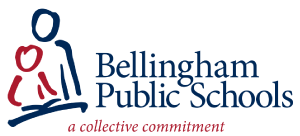The district’s comprehensive guidance and counseling program will be developed, implemented, managed and evaluated using the following foundation, delivery management and accountability systems. The overriding themes of the program will be leadership, advocacy, collaboration and systemic change. School counseling programs will be an integral part of the students’ daily educational environment, and school counselors and social workers should be partners in student achievement.
The focus of the school counseling program for each student will be:
A. Academic Development:
- Students will acquire the attitudes, knowledge and skills to contribute to effective learning in school and across the lifespan;
- Students will complete school with the academic preparation essential to choose from a wide range of substantial post-secondary options including college; and
- Students will understand the relationship of academics to the world of work and to life at home and in the community.
B. Career Development:
- Students will acquire the skills to investigate the world of work in relation to knowledge of self and to make informed career decisions;
- Students will employ strategies to achieve future career goals with success and satisfaction; and
- Students will understand the relationship between personal qualities, education, training and the world of work.
C. Personal and Social Development:
- Students will acquire the knowledge, attitudes and interpersonal skills to help them understand and respect self and others;
- Students will make decisions, set goals and take necessary action to achieve goals; and
- Students will understand safety and survival skills.
The district’s comprehensive guidance and counseling program will also assist:
A. Families in learning about resources at the school and in the community;
B. Teachers in creating a strong learning environment and in imparting to students the relevance of academics;
C. Administrators in aligning counseling with the school’s academic mission and providing data to evaluate student progress; and
D. Community members in providing opportunities for students to explore and become involved as contributing members of their communities.
Foundation
Like any solid structure, the school counseling program is built on a strong foundation. Based on our district’s goals for student achievement, what every student should know and should be able to do, this foundation determines how every student will benefit from the district’s school counseling program. The district’s guidance and counseling program is based on the following foundational beliefs and mission:
A. Mission:
Bellingham Public Schools counselors provide comprehensive, developmentally appropriate education and support to meet the college/career, academic and personal/social needs of all students. We empower students to be self-aware, resilient individuals who can overcome challenges, build healthy relationships and thrive in our global community.
Delivery System
The district’s delivery system describes the activities, interactions and methods necessary to deliver the program. Based on the district’s core beliefs, philosophies and missions identified in the foundation, the delivery system describes the activities, interactions and methods necessary to deliver the program.
To maximize student achievement and optimize the effectiveness of the school counseling program, counseling duties will focus on the following four delivery system components:
A. Curriculum: The curriculum will be structured to ensure that every student has access to guidance and planning and that students receive information for making thoughtful decisions about the future. The curriculum will be organized and delivered to help students develop academic, career and personal and social development skills, with particular emphasis on the skills students will need to succeed in the community and in their careers as adults in a twenty-first century world. Twenty-first century skills include communication, collaboration, self-direction and personal responsibility and the ability to assess one’s own knowledge and become a lifelong learner. Classroom guidance through developmentally appropriate guidance curricula will also help all students make smooth transitions from one educational level to the next and can support assessment practices to measure the impact on student learning.
B. Individual Student Planning: The comprehensive guidance and counseling program will provide opportunities for students to assess their progress, explore their interests and skills and work with their families and teachers to learn what they need to do to realize their goals for life after high school and to prepare for the careers and opportunities of the 21st century.
C. Responsive Services: The comprehensive guidance and counseling program will be organized to allow counseling staff to respond effectively and efficiently to students’ personal and social concerns. Counselors will provide staff with resources to assist students in succeeding in school by identifying and removing barriers to learning. Counselors will play a vital role in the prevention of bullying, harassment and intimidation; suicide intervention and prevention; and crisis response planning and intervention. Counselors will also work with families to refer students to community support services.
D. System Support: Counselors will meet regularly with administrators and participate in professional development activities. School counselors will use state and national program standards to guide the management and evaluation of the school counseling program.
